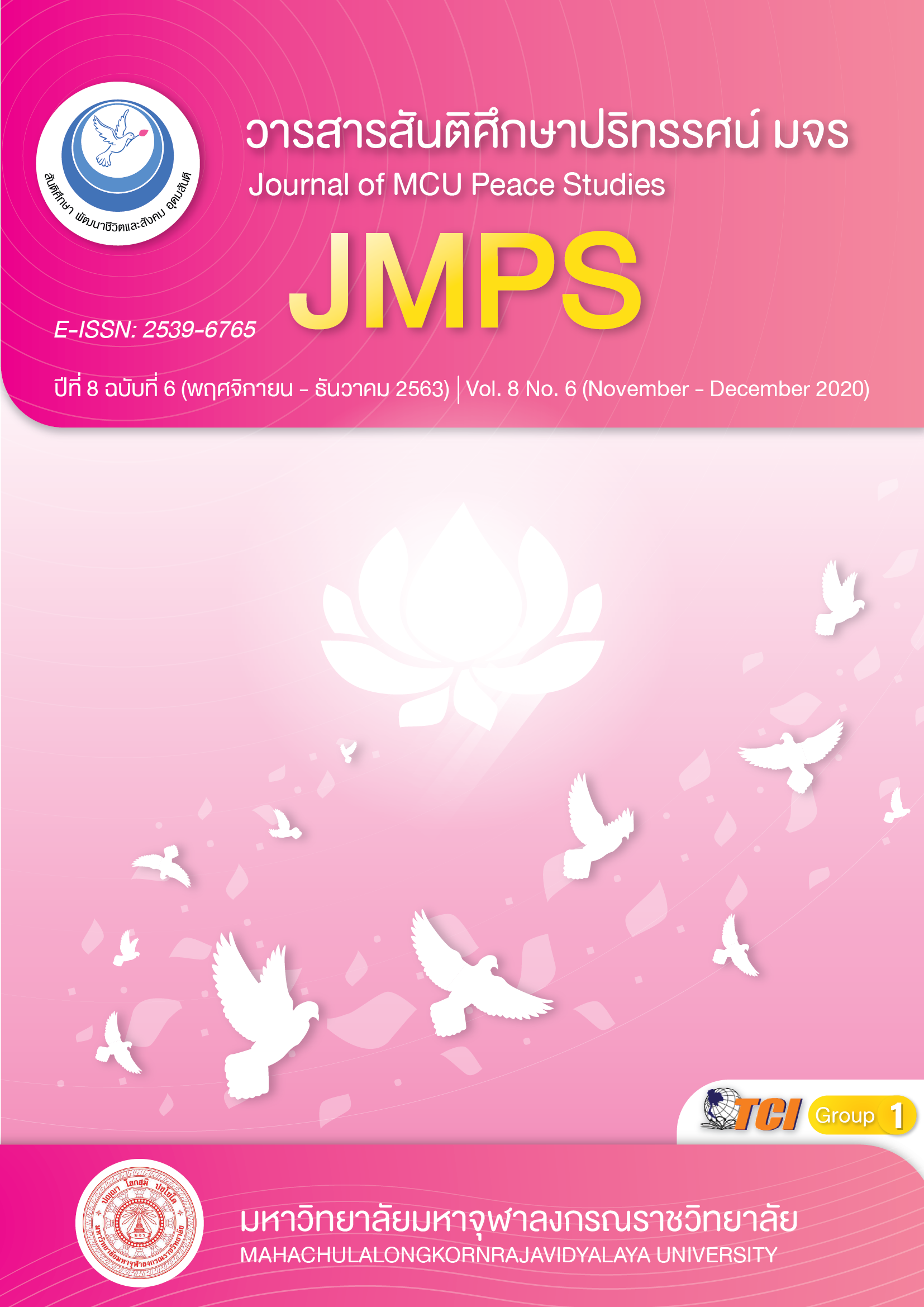แนวทางการใช้บริการที่ปรึกษาในภาคธุรกิจอุตสาหกรรม สู่ความสำเร็จอย่างยั่งยืน
Main Article Content
บทคัดย่อ
บทความนี้มีวัตถุประสงค์เพื่อศึกษาตัวแบบแนวทางการใช้บริการที่ปรึกษาสู่ความสำเร็จอย่างยั่งยืน โดยวิจัยด้วยวิธีผสมผสาน ซึ่งสำรวจข้อมูลจากผู้บริหารธุรกิจอุตสาหกรรมที่ใช้บริการที่ปรึกษาจำนวน 500 ราย เครื่องมือที่ใช้คือ แบบสอบถาม วิเคราะห์ข้อมูลโดยใช้สถิติเชิงพรรณนา และวิเคราะห์โมเดลสมกาโครงสร้าง โดยใช้โปรแกรมวิเคราะห์ข้อมูลทางสถิติ AMOS ผลการวิจัยพบว่า แนวทางการใช้บริการที่ปรึกษาในภาคธุรกิจอุตสาหกรรมสู่ความสำเร็จอย่างยั่งยืนที่มีความสำคัญมากที่สุดในด้านคุณลักษณะของที่ปรึกษา คือ มีวิสัยทัศน์ และความคิดสร้างสรรค์ในการนำพาองค์กรไปสู่ความสำเร็จ ด้านนโยบายการใช้บริการที่ปรึกษา คือ มีการตั้งเป้าหมายแห่งความสำเร็จในการใช้บริการที่ปรึกษา ด้านการแบ่งปันทรัพยากร คือ มีการจัดการป้องกันข้อมูลความลับทั้งส่วนของที่ปรึกษาและผู้ว่าจ้าง ด้านเทคโนโลยีสารสนเทศ คือ มีระบบอินเทอร์เน็ตสนับสนุนการใช้งานเทคโนโลยีสารสนเทศอย่างมีประสิทธิภาพ ผลการวิเคราะห์ตัวแบบที่ได้พัฒนาขึ้นพบว่ามีความสอดคล้องกลมกลืนกับข้อมูลเชิงประจักษ์ โดยมีค่าความน่าจะเป็นของไคสแควร์ เท่ากับ 0.064 ค่าไคสแควร์สัมพันธ์ เท่ากับ 1.147 ค่าดัชนีวัดระดับความสอดคล้อง เท่ากับ 0.957 และค่าดัชนีรากของค่าเฉลี่ยกำลังสองของการประมาณค่าความคาดเคลื่อนเท่ากับ 0.017
Article Details
ทัศนะและความคิดเห็นที่ปรากฏในบทความในวารสาร ถือเป็นความรับผิดชอบของผู้เขียนบทความนั้น และไม่ถือเป็นทัศนะและความรับผิดชอบของกองบรรณาธิการ ยินยอมว่าบทความเป็นลิขสิทธิ์ของวารสาร
เอกสารอ้างอิง
Bird, B. (2019). Toward a theory of entrepreneurial competency. Retrieved May 3, 2019, from https://www.academia.edu/1282975/Toward_a_theory_of_entrepreneurial_competency
Cerneviciute, J., & Strazdas, R. (2018). Teamwork management in Creative industries: factors influencing productivity. Entrepreneurship and sustainability issues, 6(2), 503-516.
Comrey, AL., & Lee, HB. (2013). A first course in factor analysis. (2nded.). Hillsdale: Lawrence Erlbaum Associates.
Cronbach, L. J. (1990). Essentials of psychological testing. (5thed.). New York: Harper Collins Publishers.
Driskell, T., Salas, E., & Driskell, J. E. (2018). Teams in extreme environments: Alterations in team development and teamwork. Human Resource Management Review, 28(4), 434-449.
Fatemeh, N., & Leila, N. (2014). Success factors of interorganizational knowledge sharing: a proposed framework”. The Electronic Library. 32(2), 239-261.
Kang, S., You, Y., Kim, S., & Kim, J. R. (2018). The Influence of Consultant Competence on Management Consulting Performance and Consulting Repurchase for Small-Medium sized Business. International Journal of Pure and Applied Mathematics, 118(24).
Landon, L. B., Vessey, W. B., & Barrett, J. D. (2016). Risk of performance and behavioral health decrements due to inadequate cooperation, coordination, communication, and psychosocial adaptation within a team. New York: McGraw-Hill/Irwin.
Miller, K. (2015). The oracle way to consulting. New York: McGraw-Hill.
Parikh, S. (2015). The consultant’s handbook: a practical guide to delivering high-value and differentiated services in a competitive marketplace. New Jersey: John Wiley and Sons Ltd.
Schwarz, & Roger M. (2017). Title: The skilled facilitator: a comprehensive resource for consultants, facilitators, managers, trainers, and coaches. New Jersey: Wiley & Sons, Inc.
Silcharu, T. (2020). Statistical Data Analysis and Research by SPSS and AMOS. (18thed.). Bangkok: SR Printing Mass Product.
SME Thai. (2020). SME Plus Improving business development plans to be effective. Bangkok: Good Network.


